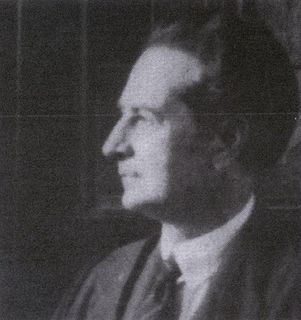Functional theories of grammar are those approaches to the study of language that see functionality of language and its elements to be the key to understanding linguistic processes and structures. Functional theories of language propose that since language is fundamentally a tool, it is reasonable to assume that its structures are best analyzed and understood with reference to the functions they carry out. Functional theories of grammar differ from structural linguistics or formalist language theories, in that the latter approaches seek to define the different elements of language and describe the way they relate to each other only as systems of formal rules or operations, whereas the former additionally takes into account the context where linguistic elements are used and studies the way they are instrumentally useful or functional in the given environment. This means that functional theories of grammar tend to pay attention to the way language is actually used in communicative context. The formal relations between linguistic elements are assumed to be functionally-motivated.

Sociology of religion is the study of the beliefs, practices and organizational forms of religion using the tools and methods of the discipline of sociology. This objective investigation may include the use of both quantitative methods and qualitative approaches such as participant observation, interviewing, and analysis of archival, historical and documentary materials.

A ritual is a sequence of activities involving gestures, words, and objects, performed in a sequestered place, and performed according to set sequence. Rituals may be prescribed by the traditions of a community, including a religious community. Rituals are characterized but not defined by formalism, traditionalism, invariance, rule-governance, sacral symbolism, and performance.
Functionalism is a viewpoint of the theory of the mind. It states that mental states are constituted solely by their functional role, which means, their causal relations with other mental states, sensory inputs and behavioral outputs. Functionalism developed largely as an alternative to the identity theory of mind and behaviorism.

Luck is the phenomenon that defines the experience of notably positive, negative, or improbable events. The naturalistic interpretation is that positive and negative events happen all the time in human lives, both due to random and non-random natural and artificial processes, and that even improbable events can happen by random chance. In this view, being "lucky" or "unlucky" is simply a descriptive label that points out an event's positivity, negativity, or improbability.

Robert King Merton was an American sociologist. He spent most of his career teaching at Columbia University, where he attained the rank of University Professor. In 1994 he was awarded the National Medal of Science for his contributions to the field and for having founded the sociology of science. He is considered a founding father of modern sociology while also gaining a status for the work he contributed to criminology.
Normative generally means relating to an evaluative standard. Normativity is the phenomenon in human societies of designating some actions or outcomes as good or desirable or permissible and others as bad or undesirable or impermissible. A norm in this normative sense means a standard for evaluating or making judgments about behavior or outcomes. Normative is sometimes also used, somewhat confusingly, to mean relating to a descriptive standard: doing what is normally done or what most others are expected to do in practice. In this sense a norm is not evaluative, a basis for judging behavior or outcomes; it is simply a fact or observation about behavior or outcomes, without judgment. Many researchers in this field try to restrict the use of the term normative to the evaluative sense and refer to the description of behavior and outcomes as positive, descriptive, predictive, or empirical.

Ralf Gustav Dahrendorf, Baron Dahrendorf, was a German-British sociologist, philosopher, political scientist and liberal politician. A class conflict theorist, Dahrendorf was a leading expert on explaining and analyzing class divisions in modern society. Dahrendorf wrote multiple articles and books, his most notable being Class Conflict in Industrial Society (1959) and Essays in the Theory of Society (1968).

Alfred Reginald Radcliffe-Brown, FBA was an English social anthropologist who developed the theory of structural functionalism and coadaptation.

A cultural system, is the interaction of different elements in culture. While a cultural system is very different from a social system, sometimes both systems together are referred to as the sociocultural system.
Neofunctionalism is the perspective that all integration is the result of past integration. The term may also be used to literally describe a social theory that is "post" traditional structural functionalism. Whereas theorists such as Jeffrey C. Alexander openly appropriated the term, others, such as the post-structuralist philosopher Michel Foucault, have been categorized as contemporary functionalists by their critics.
Humanistic sociology is a domain of sociology which originated mainly from the work of the University of Chicago Polish philosopher-turned-sociologist, Florian Znaniecki. It is a methodology which treats its objects of study and its students, that is, humans, as composites of values and systems of values. In certain contexts, the term is related to other sociological domains such as antipositivism. Humanistic sociology seeks to shed light on questions such as, "What is the relationship between a man of principle and a man of opportunism?"

Sociological theories are statements of how and why particular facts about the social world are related. They range in scope from concise descriptions of a single social process to paradigms for analysis and interpretation. Some sociological theories explain aspects of the social world and enable prediction about future events, while others function as broad perspectives which guide further sociological analyses.
Functionalism is a theory of international relations that arose during the inter-War period principally from the strong concern about the obsolescence of the State as a form of social organization. Rather than the self-interest of nation-states that realists see as a motivating factor, functionalists focus on common interests and needs shared by states in a process of global integration triggered by the erosion of state sovereignty and the increasing weight of knowledge and hence of scientists and experts in the process of policy-making. Its roots can be traced back to the liberal/idealist tradition that started with Kant and goes as far as Woodrow Wilson's "Fourteen Points" speech.

Sociology of terrorism is an emerging field in sociology seeking to understand terrorism as a social phenomenon and how individuals as well as states respond to such events. It is not to be confused with critical terrorism studies which sometimes overlaps with the psychology of terrorism.

Functional psychology or functionalism refers to a psychological school of thought that was a direct outgrowth of Darwinian thinking which focuses attention on the utility and purpose of behavior that has been modified over years of human existence. Edward L. Thorndike, best known for his experiments with trial-and-error learning, came to be known as the leader of the loosely defined movement. This movement arose in the U.S. in the late 19th century in direct contrast to Edward Titchener's structuralism which focused on the contents of consciousness rather than the motives and ideals of human behavior. Functionalism denies the principle of introspection which tends to investigate the inner workings of human thinking rather than understanding the biological processes of the human consciousness.

In sociology, deviance describes an action or behavior that violates social norms, including a formally enacted rule, as well as informal violations of social norms. Deviance is a behavioural disposition that is not in conformity with an institutionalized set-up or code of conduct. Although deviance may have a negative connotation, the violation of social norms is not always a negative action; positive deviation exists in some situations. Although a norm is violated, a behavior can still be classified as positive or acceptable.
Practice theory is a theory of how social beings, with their diverse motives and their diverse intentions, make and transform the world which they live in. It is a dialectic between social structure and human agency working back and forth in a dynamic relationship. Practice theory, as outlined by Sherry Ortner, "seeks to explain the relationship(s) that obtain between human action, on the one hand, and some global entity which we call 'the system' on the other". The approach seeks to resolve the antinomy between traditional structuralist approaches and approaches such as methodological individualism which attempted to explain all social phenomena in terms of individual actions.

In sociology, action theory is the theory of social action presented by the American theorist Talcott Parsons.








